Arts & Culture
-

Did Jane Austen even care about romance?
Scholars contest novelist’s ‘rom-com’ rep as 250th anniversary ushers in new screen adaptations
-

When trash becomes a universe
Artist collective brings ‘intraterrestrial’ worlds to Peabody Museum
-

Need a good summer read?
Whether your seasonal plans include vacations or staycations, you’ll be transported if you’ve got a great book. Harvard Library staff share their faves.
-

From bad to worse
Harvard faculty recommend bios of infamous historical figures
-
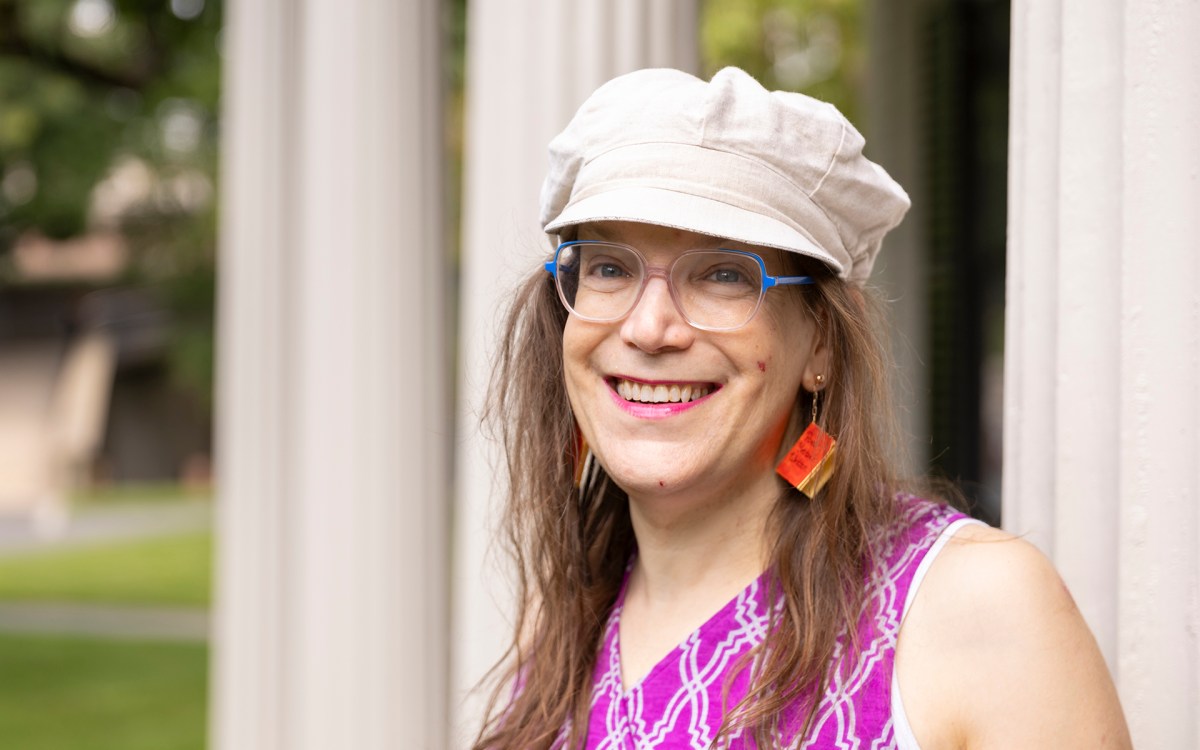
From ‘joyous’ to ‘erotically engaged’ to ‘white-hot angry’
Stephanie Burt’s new anthology rounds up 51 works by queer and trans poets spanning generations
-

What good is writing anyway?
Scholars across range of disciplines weigh in on value of the activity amid rise of generative AI systems
-
Made in America
The Humanities Center at Harvard is staging a symposium this weekend on the publication of the 1,095-page “A New Literary History of America” (Belknap Press of Harvard University Press 2009). A centerpiece of the symposium was today’s (Sept. 25) “20 Questions” panel with the book’s editors, Greil Marcus and Werner Sollors.
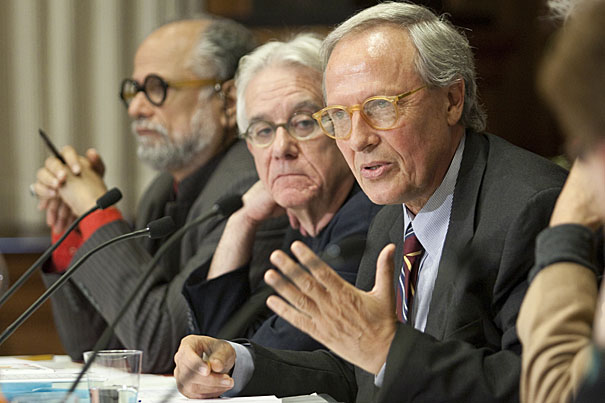
-
‘Second lives’
In the first of six Norton Lectures, Nobel Laureate Orhan Pamuk investigates the act of novel reading and the fleeting “second lives” readers acquire.
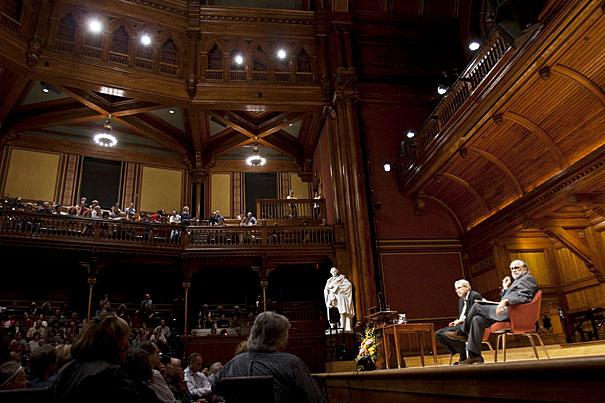
-
A New Literary History of America
This compilation of original essays features a myriad of voices from Harvard. Ingrid Monson, Peter Sacks, Cass Sunstein, Helen Vendler, and others take on Americana’s finest: porn, country music, and J.D. Salinger.
-
Close Calls with Nonsense: Reading New Poetry
In 30 essays Burt serves up literary criticism like you’ve never seen it before — his charming, excited prose unknots the web or poetry and knits a tapestry.
-
The Adventures of an IT Leader
Austin and Co. team up to create Jim, a fictional IT manager, who stumbles in his first-year duties only to (what else?) save the day. You’ll never look at your computer guy — or gal — the same way again.
-
On Rumors
Rumors affect political outcomes, tarnish reputations, even ruin lives. Cass R. Sunstein delivers this treatise on how misinformation is easily accepted and rapidly spread, and how, in the Internet age, some stories can’t be undone.
-
The sound of summer music
The musically inclined are drawn to Harvard from near and far each summer. They come together to create the sound of music through Harvard’s Summer School ensembles.
-
Sema Vakf Collection of Turkish Classical Music now available at Loeb Music Library
Turkish-born businessman Altan Ender Güzey has ensured the traditional music from the Republic of Turkey is kept alive for future generations with a donation of the Sema Vakf Collection of Turkish Classical Music to the Loeb Music Library.
-
Visiting faculty bring their art along
The “Visiting Faculty 2009-10” exhibit highlights the work of eight visiting faculty at Harvard’s Department of Visual and Environmental Studies.
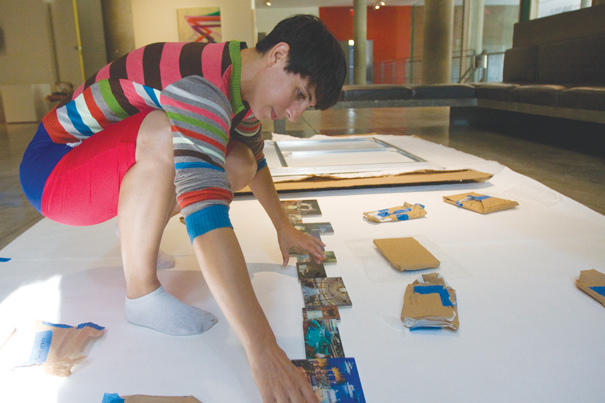
-
Norton Lectures interrogate the novel
Orhan Pamuk, winner of the 2006 Nobel Prize for literature, will deliver Harvard’s traditional Charles Eliot Norton Lectures, in a series of six talks on novels and novelists that begin Sept. 22.
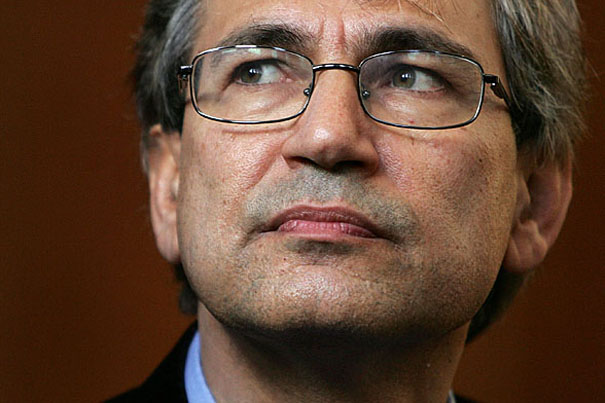
-
The sound of music
Students perform and perfect their talents as they tap into a Harvard tradition.
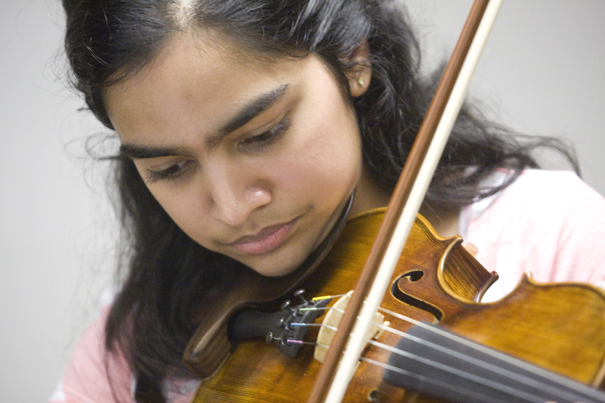
-
Justice for all
Michael Sandel, the Anne T. and Robert M. Bass Professor of Government, has authored a new book unpacking today’s most prevailing political and ethical quandaries.
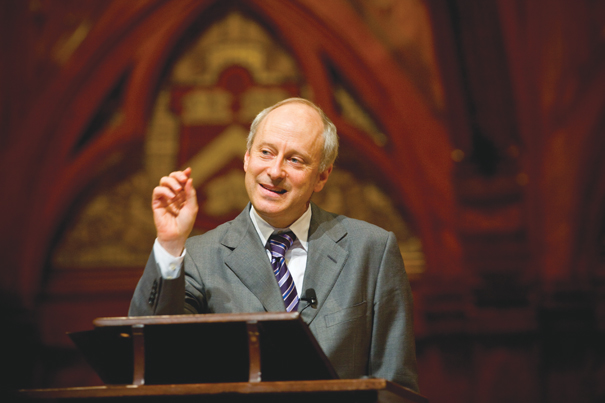
-
Longfellow online exhibition recognized by ACRL
The ACRL Rare Books and Manuscripts Section has selected the online exhibition “Public Poet, Private Man: Henry Wadsworth Longfellow at 200” as a winner of the 2009 Katharine Kyes Leab and Daniel J. Leab “American Book Prices Current” Exhibition Award.
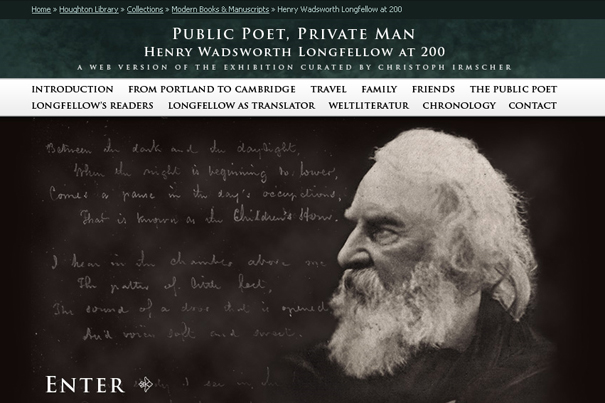
-
Harvard Film Archive acquires Just Film Stills
Lothar and Eva Just have recently made their collection of film stills and other publicity materials available to the Harvard Film Archive (HFA).
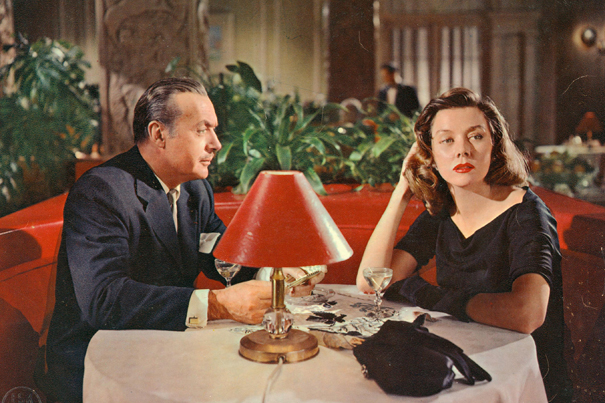
-
Oldest-known fibers to be used by humans discovered
A team of archaeologists and paleobiologists has discovered flax fibers that are more than 34,000 years old, making them the oldest fibers known to have been used by humans.

-
The Origins of Canadian and American Political Differences
Guns, government, same-sex marriage — the U.S. and Canada couldn’t be more dissimilar. Kaufman explores the history and culture of the two lands and asks why Canada is so close, yet so far away.
-
How Professors Think: Inside the Curious World of Academic Judgment
Lamont tells all in this behind-the-scenes work on the mysterious underpinnings of academia. Be in the room when the greatest thinkers meet behind closed doors and talk about how excellent excellence is.
-
Human Documents: Eight Photographers
Media maestro Robert Gardner presents this stunning array of photographs, or, “human documents,” which explore geography, culture, and our shared humanity through a universal visual language.
-
Up Close, part 2
In the fast pace of our daily lives we may overlook the details which, collectively, create a stunning backdrop for all that happens within the University. Hundreds of historic volumes stand as individual works of art inside the Houghton and Widener Libraries.
-
Johnson at 300
Harvard’s Houghton Library, home to a comprehensive collection related to 18th century English literature, sponsored a three-day international literary celebration of lexicographer, poet, essayist, and moralist Samuel Johnson, born 300 years ago this year. His work has inspired centuries of scholarship and generations of fervent ‘Johnsonians.’
-
‘The Donkey Show’ kicks off a first season for Diane Paulus
Harvard’s new American Repertory Theater director Diane Paulus ’88 takes a classic Shakespeare comedy for a spin on the disco floor with “The Donkey Show.”
-
Child psychiatrist pens her past
Psychiatrist Nancy Rappaport uncovers a relationship with the mother she scarcely knew in her powerful familial memoir. Infused with accounts of treating her own teenage patients, Rappaport plumbs the bond between parents and children while closing in on healing.
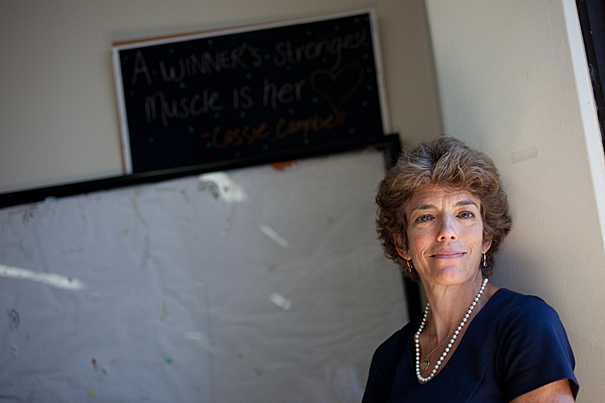
-
Helping others thrive
As the new executive director of the Harvard University Native American Program, Shelly Lowe plans to help Native American students utilize the resources that are available to them through the University.
-
Making music and keeping the faith
The father of two young children and an amateur musician, Matthew Myer Boulton, HDS associate professor of ministry studies, is investigating the spiritual dimension of human experience through the use of song with his newly formed band Butterflyfish.
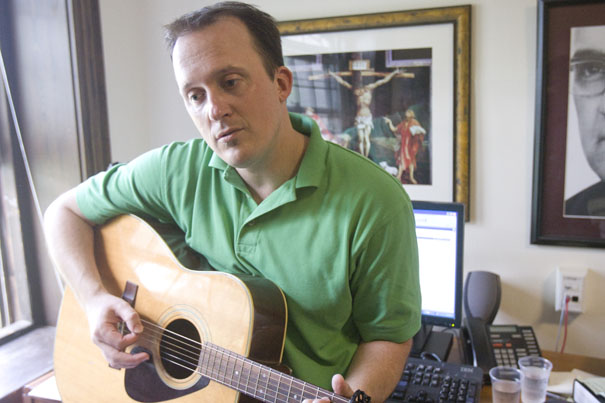
-
Nine Graduate Students Receive Loeb Fellowships
Harvard Divinity School (HDS) has announced nine recipients of John L. Loeb Fellowships for summer and term-time research in 2009.
-
Harvard-Yenching Institute selects 10 for 2009-10 scholarships
The Harvard-Yenching Institute has selected 10 students from major universities in Asia as fellowship recipients in its Doctoral Scholarship Program, Harvard-Yenching Institute and Regional Studies-East Asia Program, and training program in comparative literature at Harvard.
-
Finding the founding ideas
In 1788, Thomas Shippen of Philadelphia, a citizen of the world’s newest nation, visited the French royal court at Versailles. He was awed by its pomp, its riches, and – as he wrote – its “Oriental splendor.” But Shippen was also repulsed. He remarked on the arrogance and waste of royal life, and on the fact that it required great suffering among France’s unrepresented poor.
-
Designer dreams
Callum Gilbert was an unemployed bricklayer and high school dropout when in 2006 he was attacked outside a hip-hop concert in his native Liverpool, England. This summer, Gilbert – now 22 – is studying at Harvard’s Graduate School of Design (GSD).
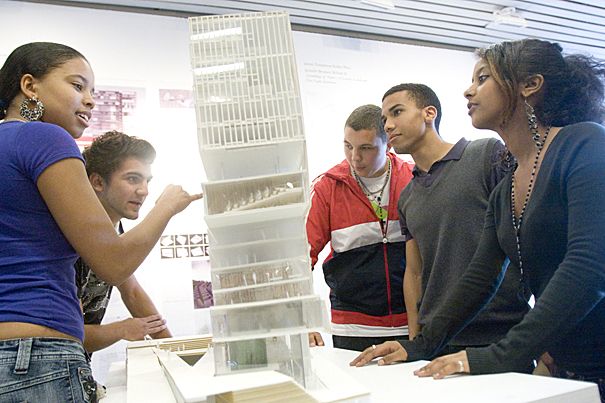
-
History on a small scale
On the second floor of Harvard’s Science Center is a temporary exhibit of 75 patent models from the 19th century, a time of prolific American invention that produced the revolver, zippers, trolley cars, and cash registers.
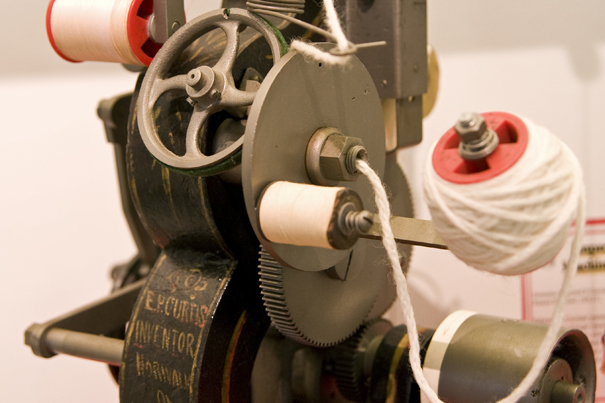
-
Impressions of women
More than ever, the Harvard Art Museum is making it easier for scholars and students to use its permanent collection (more than 250,000 works) to shed light on a variety of disciplines.

